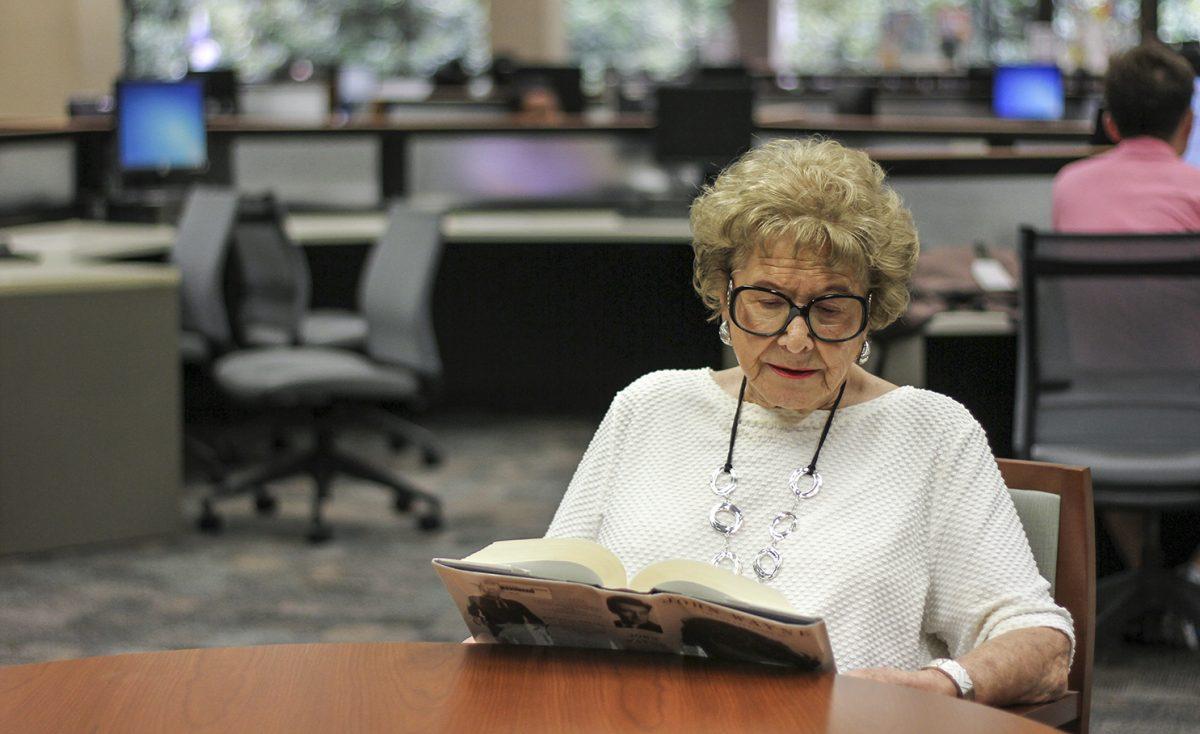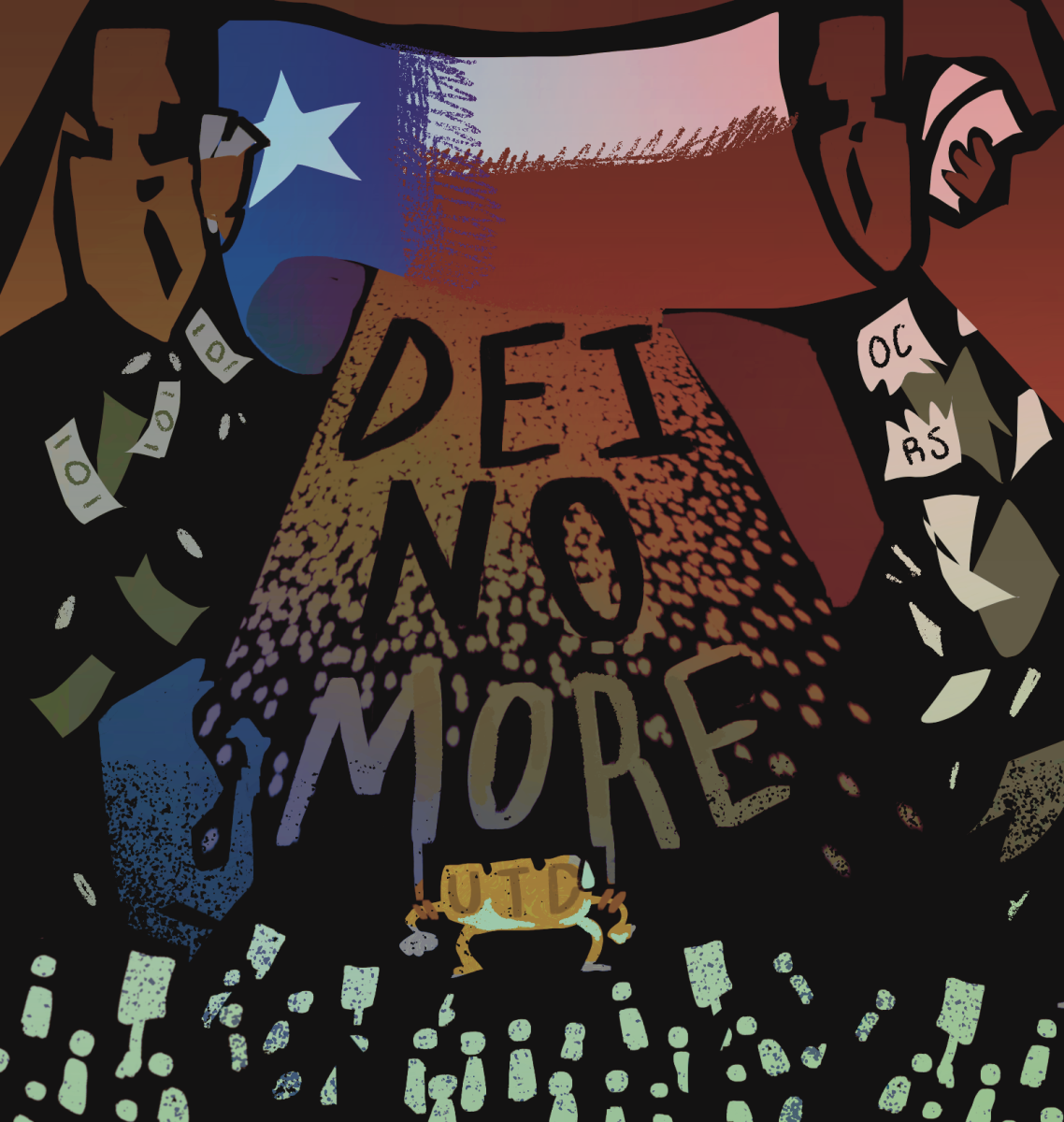Helen Small, one of UTD’s oldest students, passed away on May 4, 2017 at 97 years old. Small graduated from UTD in 2007 with a bachelor’s degree in psychology and in 2010 with her master’s in clinical psychology at the age of 90.
Small first began her education in the 1930’s at Akron University, but decided to quit once she met her husband and began a family. Small and her husband Alton ran a Custom Homes business together until he passed away several years ago. She then decided to go to school again, and, after attending Brookhaven college and graduating, she started school at UTD. Even after graduating with her master’s degree, Small preserved her ties to the UTD community by volunteering at the McDermott Library and the Center for Vital Longevity.
While at UTD Small always came to class, sat in the front row and had a friendly, smiling face, said Marion Underwood, dean of graduate studies, who taught Small in her undergraduate abnormal psychology class.
“She was many decades older, but she never acted like that made any difference, and it didn’t seem to, because she was smart, she was here to learn, she was excited to take on new challenges and she was so extremely friendly that she just blended in with everybody,” Underwood said.
Small was not only very smart, but also gracious, Underwood said.
“You would ask about her but very quickly she would turn it around, she showed interest in everything about our research, and then about my daughters, my family, we would talk about our families,” she said.
UTD alumna Flora Farago and Small both completed their master’s degrees at UTD. They bonded over their Jewish heritage, among other connections, and Farago saw Small as a grandmother figure.
“Her hair and nails were always done, her teeth (were) shiny and beautiful,” Farago said. “She was always put together, mentally and physically sharp and really defied stereotypes about old age.”
Even after Farago left UTD, the connection between the two women stayed strong. Small was a voice of encouragement while Farago continued her education.
“I felt like she was one of my personal cheerleaders, she was always so supportive, asking about how I’m doing, and telling me how proud she is of me,” she said.
In an email interview with The Mercury, John Santrock, professor of Behavioral and Brain Sciences, said when Small stopped coming to his class, he discovered she had broken a shoulder bone after falling in the parking lot. She came back the next semester, reinforcing what Small used to say about never giving up on goals, Santrock said.
“After she got her undergraduate degree, I had Helen come back and talk to students in my life span class … about her journey through life. The students loved her stories and wisdom. Helen continued to do this every semester until she was 95,” Santrock said in an email.
Small looked younger than she was and carried herself in a youthful manner, said James Bartlett, dean of Behavioral and Brain Sciences, and he was surprised when he discovered Small’s age.
“She was just a really great example of how you can continue being active, curious, engaged, ambitious, in to what people consider to be ‘old age,’” he said.
After she earned her degree, Small gave presentations and helped recruit people for study at the Center for Vital Longevity. Denise Park, director of research at the Center for Vital Longevity, said Small approached her for work at the Center. Small initially made appointments with participants in the studies and came along on the Center’s presentations, then later assisted with projects at the Center, doing data scoring and data entering.
“She really exemplified all that all of us hope to be when we get to be her age, if we get to be her age,” Park said.
Farago said when Small graduated with her master’s degree, she defied stereotypes of what a 90-year-old can do and was an inspiration to others.
“She was just a very dynamic individual who nurtured many, many relationships, at UTD and really beyond, in the Dallas community,” she said.

















